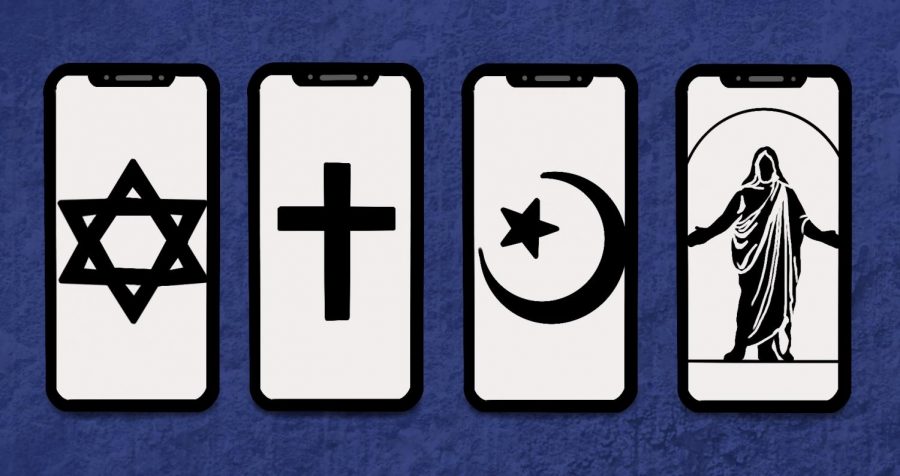Campus faith groups go digital to build community
April 29, 2020
Because of social distancing precautions and stay-at-home orders, campus faith groups and religious organizations have turned to social media and Zoom to stay connected to students.
Tyeese Braslavsky, a sophomore in LAS, has been interning at Illini Hillel since the beginning of the academic year. Braslavsky was initially skeptical when she learned the Jewish organization’s services would be exclusively online. Worrying about the quality of the content, she said she thought the transition would either be “super cringey or super boring.”
Weeks later, Braslavsky said she was impressed with the wide array of programming Hillel is now offering, ranging from nightly prayers to coffee talks to cooking demonstrations.
At St. John’s Catholic Newman Center, the faith leaders are also leveraging different platforms to meet students where they’re at. Father Chase Hilgenbrinck explained that the podcasts they produce and the services they stream are more about faith building. “Six Feet Apart,” a new weekly Instagram Live show created by Hilgenbrinck and the other priests where they answer student questions, aims to be more spontaneous and interactive. Hilgenbrinck has also begun sharing daily spiritual vlogs on YouTube.
Hilgenbrinck said they want to use platforms as students would use them, which means not only thinking about what content they’re creating but how that content is being interacted with and consumed.
Get The Daily Illini in your inbox!
“If we use (platforms) for what they’re used for, that’s usually how you’re the most relevant,” he said.
Hilgenbrinck credits part of their digital presence to their marketing director but also to the students who voice what they want to see.
Braslavsky said Hillel leaders also rely on student feedback to administer and facilitate different programming ideas.
For other faith groups figuring out how to transition to online, Braslavsky said leaders have to be open to experimenting since it’s a trial-and-error process. Weeks ago, Braslavsky couldn’t imagine a virtual Hillel. Now, she recently helped lead a remote project that aimed to reduce the risk of COVID-19 infection for prison populations in a partnership between Hillel and the Champaign County Bailout Coalition.
Marium Kurerishy, a senior in Media, is a programming and community outreach volunteer at the Central Illinois Mosque and Islamic Center (CIMIC). While CIMIC is also live-streaming its Friday services via YouTube, Kurerishy is trying to keep in touch with members with efforts like a virtual version of the annual Know-Your-Muslim-Neighbor program. She is also involved in the C-U chapter of the Muslim American Scholar who is offering extra programming and enrichment opportunities so people can still study, learn and practice if they want.
Ramadan, the Muslim holy month, began on April 23. At CIMIC, Kurerishy said members usually gather in the mosque and do extra night prayers. She said not having that in-person community feeling is a huge adjustment. However, trying to find a silver lining, she said that one can look at this as an opportunity to focus on personal spirituality.
Many faiths are missing large gatherings for sacred holidays and events. Shad Anderson, director of the Latter-day Saint Institute in Urbana, said this was the 200th year since their prophet had his first vision. The large 20,000-person conference was supposed to take place in Salt Lake City this spring but ended up being online, Anderson said.
Anderson said that he believes faith is trust, and for people who put all their faith in politicians, economies and medicine, he can see how this would be a scary time. For him, he said that his faith is keeping him still.
In an increasingly secular world, Hilgenbrinck said it’s interesting to see more people ask spiritual questions, even without the physical community organized religion can provide.
“Our worship is not necessarily taken away or removed from us just because we can’t be in one another’s physical presence,” he said. “Our physical presence with each other is the highest expression of our faith.”







